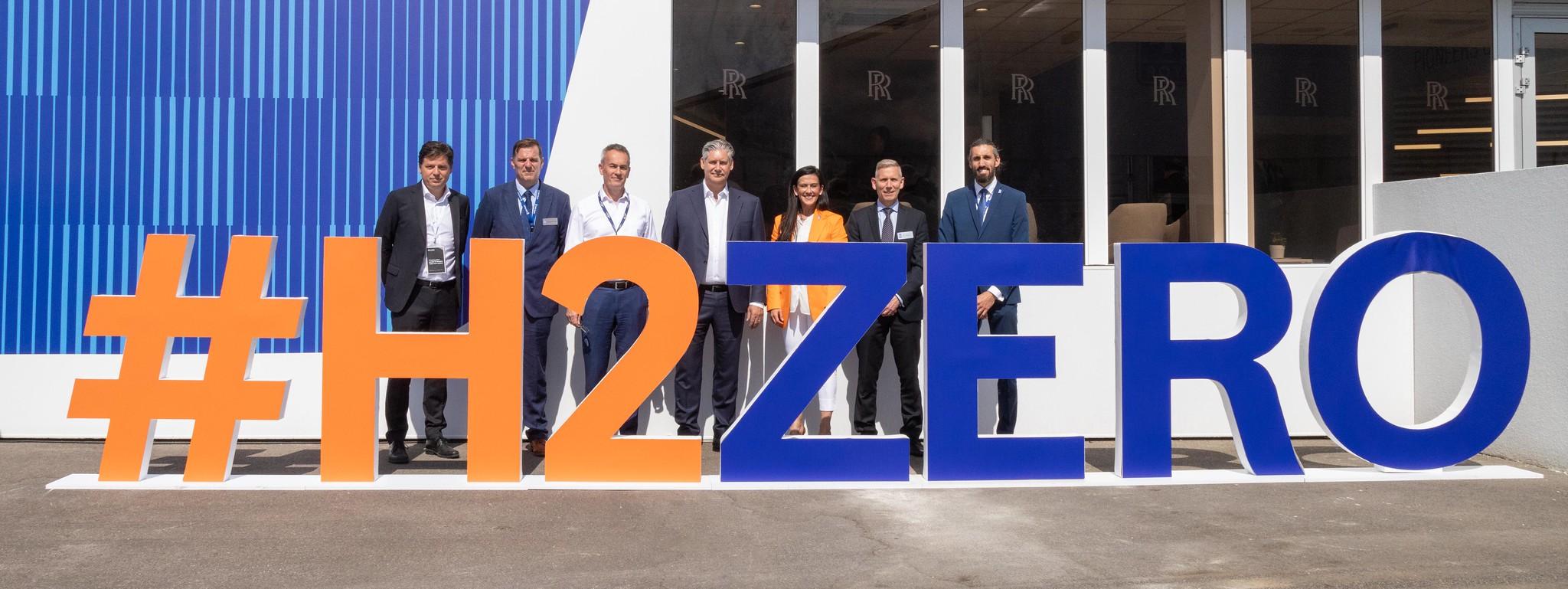
FARNBOROUGH—UK ULCC easyJet CEO Johan Lundgren has announced a multi-million-pound investment in a new partnership with Rolls-Royce to explore hydrogen propulsion technologies.
Rolls-Royce chief technology and strategy officer Grazia Vittadini said the partnership, called H2ZERO, aims to demonstrate that hydrogen has the potential to power aircraft from the mid-2030s onwards, ultimately including narrowbodies.
The open-ended cooperation, announced at the Farnborough Airshow July 19, will see the two companies cooperate on a series of early concept ground tests of a Rolls AE 2100 engine in the UK, which will begin later in 2022.
This will be followed by a full-scale ground test of a Rolls Pearl 15 jet engine, with the location yet to be decided. This builds on initial hydrogen combustion and fuel system rig tests that Rolls is performing in partnership with Cranfield and Loughborough universities in the UK.
EasyJet will contribute its operational knowledge, along with a “multi-million pound” investment, according to Lundgren. He said there was a “huge opportunity” to get involved at an early stage.
“Ground tests will start this year, then we will take it to the next step and the next step,” Lundgren said. “There are lots of unknowns, but these are not unknowns that we are unlikely to resolve.”
Lundgren added that the industry needed “radical solutions” to hit its carbon neutral goals. “As of today, we don’t have the luxury of being able to say ‘that technology won’t work’,” he said. “What we want to demonstrate with this program is not only that this technology works, but that it works on an easyJet-sized aircraft.”
Around 51% of overall aviation carbon emissions come from narrowbodies. “That is the prize that is there,” Lundgren said.
EasyJet, an all Airbus A320 family operator, is an early adopter of sustainability technologies, including a partnership with Wright Electric, which is working on electric aircraft technologies. Lundgren said the Wright Electric project will also continue, as all options need to be explored and electric aviation research will feed into hydrogen projects too.
EasyJet has set itself a target to cut its emissions by 35% by fiscal 2035, against a fiscal 2020 baseline.
